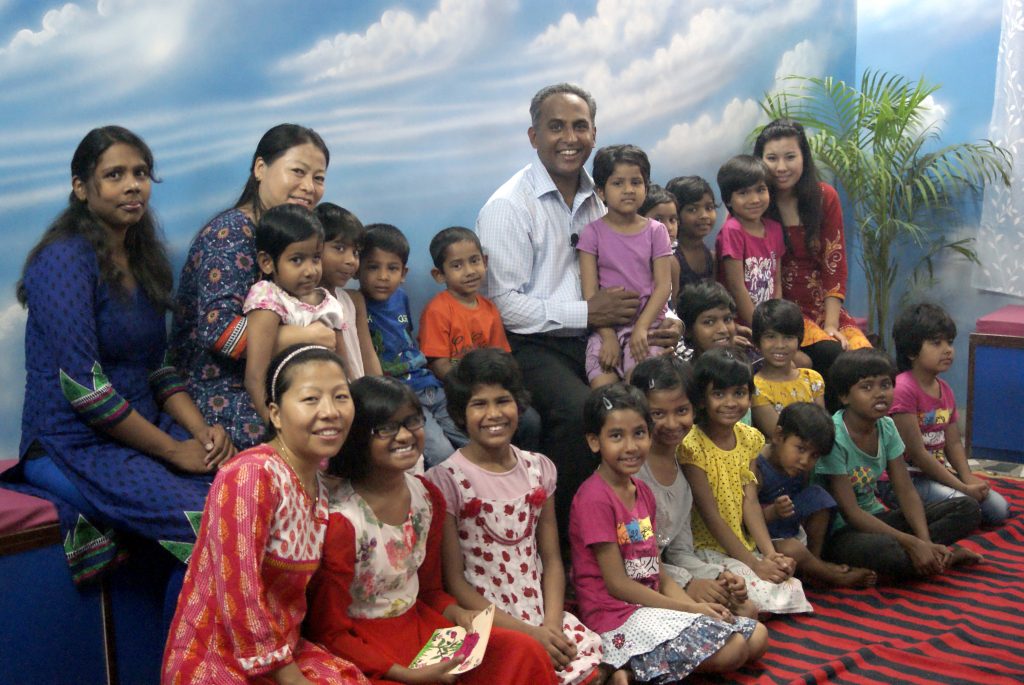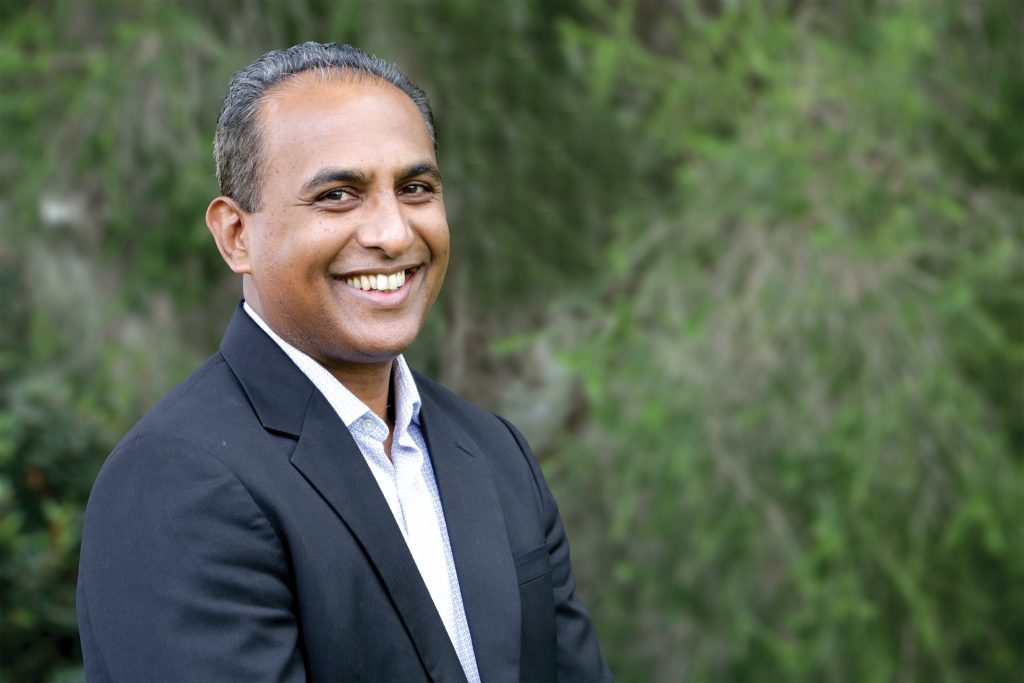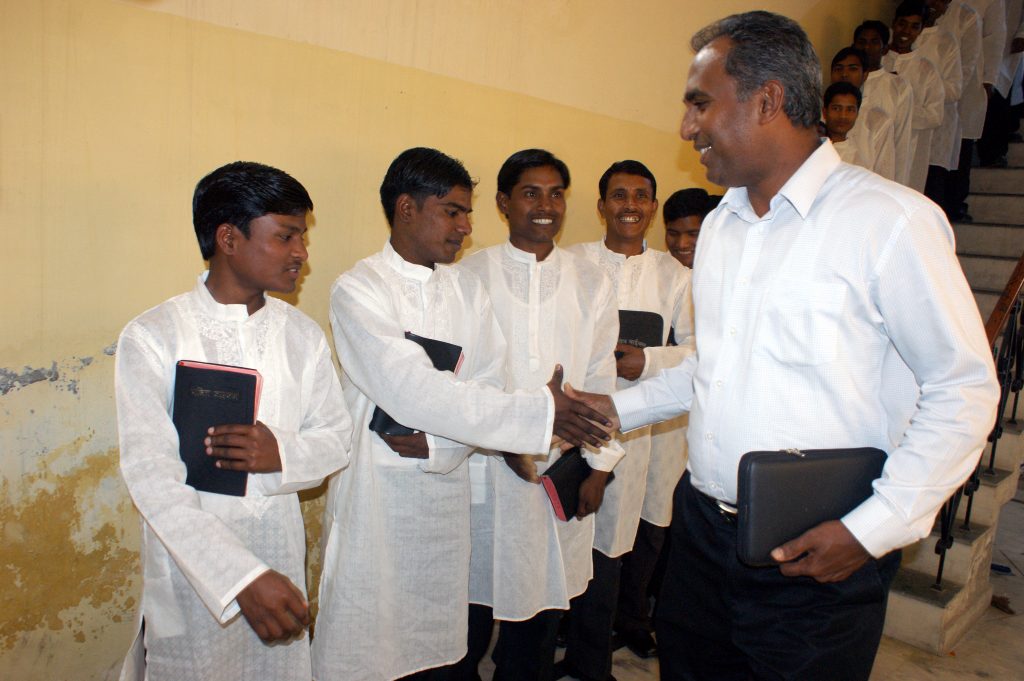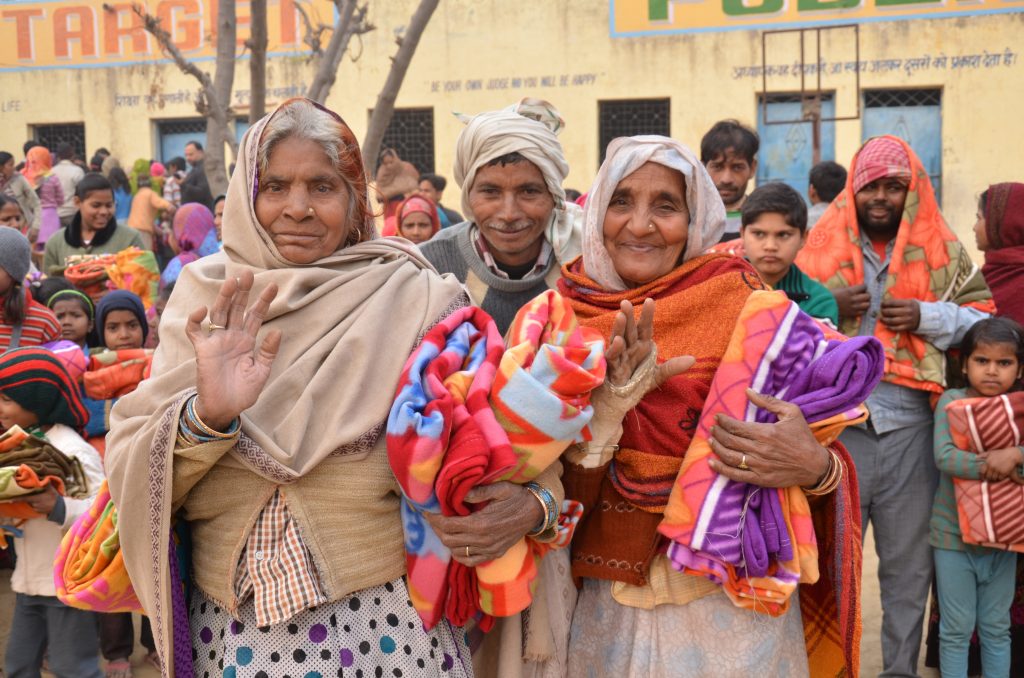It took Jossy Chacko a long time to realise that he had to change direction in life and start a ministry in South Asia modelled on Jesus and Paul and the early church.
The successful Melbourne businessman did a lot of soul-searching before he surrendered his dream of early retirement and set up a ministry that aims to transform 100,000 communities by 2030.
At the last count, his Empart ministry had work in more than 20,000 communities, all led by field workers from the local area who function as social workers as well as spiritual leaders, showing the love of Jesus in word and deed.
Field workers are all trained in practical skills such as how to cut hair, make soap and shampoo, tailoring, teaching literacy and numeracy as well as health, hygiene and first aid, so that they are equipped to engage holistically with the community.
“We take care of the mentally ill, the physically handicapped. We plant trees … help build toilets, dig wells and educate people about sanitation and healthy practices.”
“We take care of the orphans and the widows; we have widows’ homes, we have hostels, we start schools, literacy programmes, skills development programmes, cleaning up the village programmes, organising health camps, hospitals,” says Jossy during a Skype interview from Asia.
“We take care of the mentally ill, the physically handicapped. We plant trees … help build toilets, dig wells and educate people about sanitation and healthy practices.
“We have a feeding the hungry programme.”
“Then we have a feeding the hungry programme … In winter the believers in the community go around collecting all the warm clothes from everybody, and then take them to those that need them.
“So our ‘transformed communities’ fully engage, not just waiting for foreigners to send something; they literally go around the community taking the initiative.”

Children at a safe house Jossy Chacko
Growing up in South India, Jossy had never seen anyone come to faith in the Lord or heard the importance of obeying the Great Commission.
He was greatly influenced by his godly and successful grandfather, but the family’s Christianity was a cultural faith that concentrated on religious observance. There was no gospel outreach or social service to the poor.
When Jossy moved to Perth at the age of 17 with $20 in his pocket, his burning ambition in life was to make money, and then return to India and establish a successful printing business. When the printing business he joined failed, he fell into depression, feeling too ashamed to return to India. It was just as he was planning to end his life that he had an encounter with Jesus on a rooftop, when he heard a voice say, “You’re mine.”
From that moment everything changed, not only spiritually but also physically, relationally and economically.
“The reason that I’m alive is because of him,” Jossy says.
“I got a great job, the only job that I’ve had, with great family and friends, so from then I decided, ‘well, there is a God’ because I experienced his power and he answered things that I was really craving for, and so then I picked up the Bible because I wanted to know what this is all about.”

Jossy Chacko Jossy Chacko
For many years, however, business held more attraction for Jossy than mission because the church in Melbourne seemed disconnected from the dynamism of the early church, which was so fruitful it was making new disciples daily.
So Jossy channelled all his energies into the logistics company he worked for, building it up to a point where it was listed on the Australian Stock Exchange.
“I had no interest in getting involved or channelling my energy into something that wasn’t going anywhere,” he says.
By the time he took his Australian wife Jenni on honeymoon to India, Jossy was pursuing a dream to retire early and live a quiet life on a hobby farm and was in the process of buying a property in Tasmania.
But that plan was derailed by an encounter with eight-year-old homeless boy on a train in India. To this day Jossy can’t explain why he invited Raju to join him and Jenni on the rest of their honeymoon.
“That’s the million-dollar question because even now I look back and say how stupid can somebody be taking a slum boy with you on your honeymoon? It just doesn’t make any sense,” he confesses.
“Certainly I was so captured by his stories … He began to open up a world about the begging mafia, which I’d never understood. I thought that beggars were just poor people trying to make a living, but it actually is a huge moneymaking industry and these people are just used and abused.
“Then he began to open up about the body part industry, which I had never heard about, and the poverty, the misery, the sexual abuse, the sex trafficking – it was unbelievable; I never imagined that human beings were capable of doing these things to other human beings.”
“Why am I a Christian, what is my role? Is my success just for my own benefit? Or is my success for others beyond me and my family?”
Despite his plight, Raju had a dream to set up a shoe shop by the side of the road and have a family and send his kids to school.
“In a sense, he was just like me when I was eight years of age, so regardless of the situation and the plight, there is a dream that is trapped inside, but his ability to see that dream fulfilled is limited because of his circumstances.
“And that’s what has troubled me, that not everybody is going to succeed in life on their own – they need some help. So that’s where I started to question where does my faith fit in, why am I a Christian, what is my role? Is my success just for my own benefit? Or is my success for others beyond me and my family?”
The encounter with Raju set Jossy on what he calls a troubled journey. On the honeymoon trip he had also met an evangelist called Philip who told him there were still people in his country of birth who had never heard the gospel.
“We cannot make anybody Christian. The objective is to give everybody the opportunity to choose or reject – that’s their business. At least let them know that there is a loving God who sent his only son.”
Jossy was incredulous, so three years later he made a second trip to India and visited remote villages with Philip. Sure enough, at one village he met a group of people who had never heard the name Jesus. After being told Jesus was the only way to God, a boy called Rakesh became upset and asked why they hadn’t come earlier. Now it was too late – his father died three months ago without ever hearing the truth.
The businessman in Jossy was shocked to realise that McDonald’s and Coca-Cola had outperformed the church in brand recognition when the church had had a 1900-year head start and had so many more resources.
“It’s not that I believe it’s our duty to make everybody Christian – in fact, we cannot make anybody Christian. The objective is to give everybody the opportunity to choose or reject – that’s their business. At least let them know that there is a loving God who sent his only son.”

Jossy congratulates graduating pastors Jossy Chacko
Through years of reading and research Jossy came to realise that the church had failed to fulfil the Great Commission to reach all nations because it had left global mission in the hands of missionaries, when it was a job for all believers. If every Christian told six people about Jesus over the next six months, he notes, the job could be accomplished.
He believes the church has confused maintenance with mission, prioritising worship, prayer and Bible study – all of which Christians can do in heaven – over mission and helping the poor and needy, both of which they can only do on earth.
“This is why the church has failed – because we have not taken it up. I mean, if God can take us to heaven, now I’m saved, it’s just like I’m in a departure lounge of an airport waiting for the plane to come. I’ve got my visa, I’ve got my boarding pass and I’m just waiting. So that waiting room has no purpose, but these experiences brought clarity that this is not a waiting lounge; this is the front line of a battleground,” he says. “And from that the clarity emerged that I was heading in the wrong direction; now I just need to readjust my sail and go in this direction.”
Over the next two years Jossy approached mission agencies and NGOs promoting his vision to bring the love of Christ in word and action to Asia through the ministry of local, indigenous people.
“They felt like these were all crazy ideas and I had zero credentials.”
So Jossy set up his own organisation, Empart, using the ministries of Jesus and Paul as the model. The essence of its method is to find local people, lead them to Christ, then take them on a discipleship journey.
“We teach our pastors to discern those that have a call of God on their life and they tap them on the shoulder, pray with them and then work with them.”
“In India there are no Indians; there are Punjabis or Tamils or Rajasthanis, so it’s about empowering people from every state or culture who speak the language and understand the culture and can live in the context of that,” he says.
“So it’s not like you go and borrow existing Christians, but new believers because they have a testimony and a story which others don’t have.
“We teach our field workers to discern those that have a call of God on their life and they tap them on the shoulder, pray with them and then work with them. If they also feel that they have a calling, they are recommended to do a one-year residential programme where they live in a community with a senior leader and his family in groups of no more than 25.

Some women receive free blankets Jossy Chacko
“The primary focus of that training is character development, because people don’t succeed or fail in ministry because of lack of information but because of lack of character.
“The whole idea is that people can be together with their leader and the family, seeing how a leader lives his life, how does he relate to his wife and kids, and to the community, and how does he grow his community of believers.
“So all of that is packaged together with biblical foundations and practicalities and social service. So they become effective workers bringing holistic good news, not just the spiritual good news but also practical, economical good news to the community.
“And through that, of course, they are sharing the good news of Jesus. Those that respond to that then start forming and developing a prayer group and Bible study and eventually a community of believers.”
It typically takes about three years from the tap on the shoulder to an established community with a minimum of 12 believers meeting regularly. A group of believers receives financial support for a maximum of seven years after which it has to become self-supporting.
Empart is on track to meet the target of 100,000 communities transformed by 2030.
For those who demonstrate a greater leadership capacity there is another one-year residential leadership and management programme to produce overseers and supervisors for the other workers in the field.
For all its success – and Jossy says Empart is on track to meet the target of 100,000 communities transformed by 2030 – the ministry faces many challenges.
“There is persecution, hostility – not everybody is as excited about the gospel as we are, or even excited about helping the poor,” he says.
“So we ask people to pray, we ask people to partner, we ask people to come over and see what is happening. If anybody wants to see a glimpse of what the Book of Acts and the early believers were like., they can come over and see the love, the passion, the dynamic, heroic actions of some very simple, new, fresh believers, and how God is working among them and through them.”
For more information about Empart, visit empart.org
Pray
Some prayer points to help
Pray that Empart would continue impacting India for Christ.

